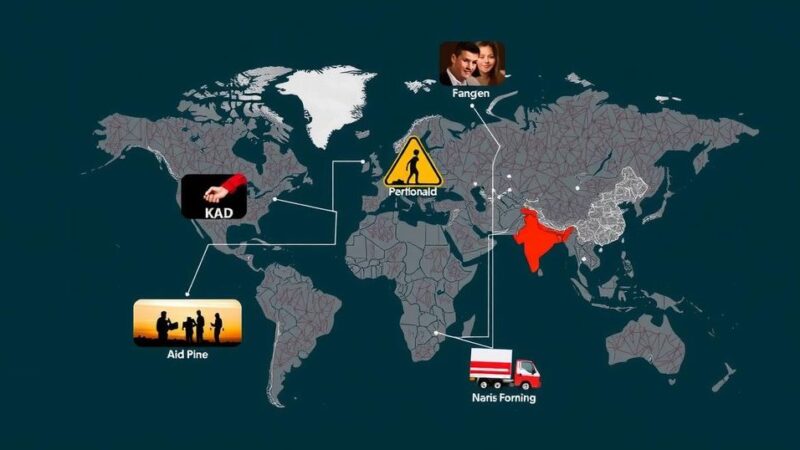The recent assassination of Hamas leader Yahya Sinwar may solidify Israel’s assertive military approach, diminishing prospects for negotiations over hostages and ceasefires. This event alters the conflict dynamics, emboldening Prime Minister Netanyahu amid regional complexities, while underscoring the need for rational peace efforts as the situation evolves.
The assassination of Yahya Sinwar, the leader of Hamas’s political bureau, signals a pivotal moment in the ongoing Gaza conflict, potentially justifying a decisive end to hostilities. The absence of strong leadership within Hamas, particularly in negotiating terms related to Israeli hostages and ceasefires, marks a significant shift in the dynamics of the region. This event may empower Israeli Prime Minister Benjamin Netanyahu to pursue more aggressive strategies, utilizing his perceived success to strengthen his position domestically and address external threats posed by groups such as Hezbollah and Iranian proxies. Since the events of October 7, there has been a systematic removal of significant figures from Hamas and Hezbollah, indicating a broader transformation of alliances in Lebanon and Gaza. Netanyahu’s actions against these leaders could enhance his confidence in pursuing his political agenda, even as the prospects for peace negotiations diminish. Analysts suggest that despite the potential for a renewed focus on hostage release and Palestinian Authority re-engagement in Gaza, Netanyahu is unlikely to adopt this course before the upcoming U.S. presidential elections, as he seeks to undertake military actions against Iran and Hezbollah in the interim. Internally, the situation has cultivated a complex political landscape in Israel, influenced by the ongoing rivalry between extremist religious factions and a broader electorate. Since Netanyahu’s rise to power in the 1990s, Israeli politics has evolved, with extremist views gaining traction at the expense of more moderate perspectives. Netanyahu capitalizes on nationalist rhetoric appealing to his electoral base, particularly when it comes to responding to perceived threats from Palestinian groups and regional actors, further perpetuating the cycle of conflict. The emergence of the flexible right — a coalition inclusive of varying degrees of nationalism within religious factions — has enabled Netanyahu to maintain political stability despite the country’s volatile circumstances. However, this coalition’s loyalty may be contingent on the satisfaction of their interests without excessive costs. Should the situation escalate dangerously due to potential Iranian retaliation, Netanyahu may find himself confronting a precarious political future, underscoring the pressing need for rational discourse aimed at conflict resolution and the exploration of a two-state solution.
The assassination of Yahya Sinwar represents the latest escalation in the long-standing Gaza conflict, which has historically involved complex interactions between Israel and Palestinian factions, primarily Hamas. Sinwar was a prominent figure within Hamas and his death may alter the power dynamics both within the group and with respect to Israel. The conflict’s roots lie in deep-seated territorial disputes and political tensions, which have escalated in recent years, further complicated by regional influences such as Iran and the political landscapes of neighboring countries. As the Israeli government faces pressure to assert control and address threats from various fronts, the implications of leadership changes and military strategies cannot be underestimated in shaping the future of peace negotiations and regional stability.
In summary, the assassination of Yahya Sinwar could serve as a catalyst for a more aggressive Israeli military posture, marking a significant shift in the ongoing conflict. While the potential for negotiation with Hamas diminishes due to the lack of viable leadership, Netanyahu’s maneuvers reveal a duality in Israeli politics, characterized by extreme nationalism and the complexities of coalition dynamics. The pressing need for a rational approach to peace, particularly through the lens of a two-state solution, is critical. The future remains uncertain as Netanyahu navigates both internal political pressures and external threats in an increasingly tumultuous landscape.
Original Source: www.dailynewsegypt.com






